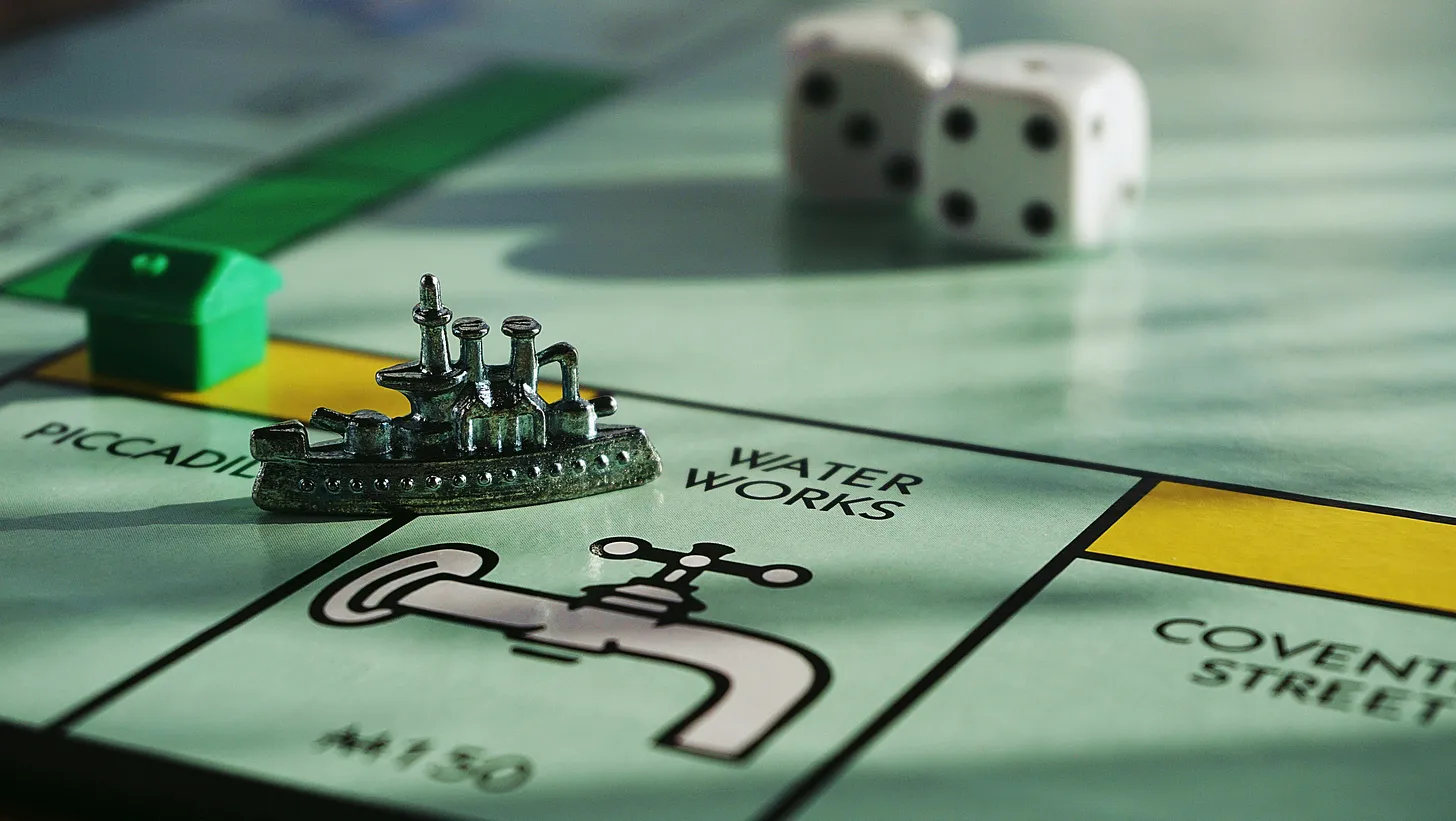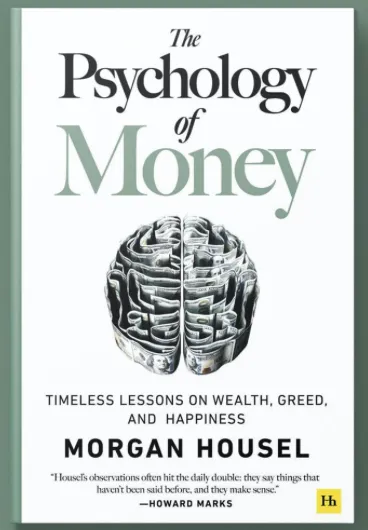Learn from the wisdom of experts to speed up your retirement journey
Good Evening, Geo Fire Fans!
October is here and for me that means, Uni is finishing up, Marathon training is ramping up and the trip to Europe is looming. I honestly can’t wait to get back to Europe and i’ll be sure to keep you updated with some more articles here telling you about our adventures.
Before we drift into holiday mode, here’s a quick reminder of what this newsletter is all about:
- Supercharging your retirement plans
- Sharing practical financial wisdom (without the fluff)
- Giving you that nudge to take action now
Each month, I break down a finance or personal development book, pulling out the top actionable insights to help you get closer to your goals. Even if the book ends up as a coffee coaster, these tips won’t! Let’s dive in!
The Psychology of Money is a deeply insightful book that explores the behavioural aspects of finance. Instead of focusing on traditional financial advice about saving, investing, or budgeting, Housel digs into the emotional and psychological factors that often drive our financial decisions. He argues that financial success isn’t necessarily about how much you know, but rather how you behave. This perspective is crucial, especially for those seeking to achieve financial independence through geo-arbitrage.
Below, I’ve pulled out the top 5 actionable points from the book that you can use right away to improve your financial health and fast-track your journey to early retirement.
Housel emphasizes that the magic of compounding is often overlooked because it doesn’t seem significant in the short term. However, over long periods, it is one of the most powerful forces in building wealth. Housel shares the story of Warren Buffett, who became one of the richest people in the world primarily because he started investing early and let his investments grow over decades.
How this applies to early retirement: Compounding works even better when you can minimise your living expenses. Imagine moving to a country where your living costs are halved. The money you save by living in a low-cost country allows you to reinvest more of your earnings. For example, if you cut your living expenses from $4,000 per month in Sydney to $2,000 per month in Chiang Mai, you could invest the difference ($2,000) every month. Over time, the power of compound growth accelerates your path to financial independence.
Housel reminds us that luck and risk play significant roles in our financial lives. Successful financial decisions aren’t always about perfect planning; sometimes, they involve a bit of luck. On the flip side, bad outcomes can sometimes happen even with good decisions. He cautions against assuming that all success comes from skill, and emphasizes the importance of preparing for uncertainty.
How this applies to early retirement: If you’re planning to retire abroad, understanding the unpredictability of life is crucial. For instance, moving to a country like Thailand or Portugal might be an excellent decision, but you can’t predict future geopolitical changes, currency fluctuations, or health emergencies. That’s why it’s essential to have a financial buffer. Rather than investing every penny, keep a portion of your savings liquid in case of emergencies or unexpected situations in your new home country.
On a personal note: I can definitely relate to the role of luck in finances. During the last crypto bull run, I held a significant amount, and its value was soaring. Around the same time, I met someone on a walking tour who introduced me to options trading. It seemed like a smart move, so after a few months of research, I closed my crypto positions (which had already started to decline) and shifted the capital into stocks to start trading options. Despite the downturn in crypto, I managed to hold onto much of the gains and move forward. Looking back, I realise how lucky I was—first, that my best friend got me into crypto, and later, that I met someone who guided me toward a new financial strategy. Sometimes, it’s not about being the smartest—it’s just about being in the right place at the right time.

3. Focus on Long-Term Thinking, Not Short-Term Gains
Housel stresses that financial success comes from thinking long-term and not getting distracted by short-term events. Many people chase quick gains, whether through risky investments or lifestyle inflation, but real wealth is built slowly and steadily.
How this applies to early retirement:If you’re moving overseas to save money and increase your quality of life, it’s easy to get caught up in the excitement and spend more than you intended. Maybe you find yourself upgrading to a beachfront property or splurging on imported fancy things. However, the real value of geo-arbitrage comes when you commit to living simply and investing your savings. For example, a couple moving to Mexico might be tempted to live in a more expensive tourist area, but they could save far more by choosing a quieter town while still enjoying a high quality of life.

One of the central themes in “The Psychology of Money” is the value of flexibility. Housel argues that the ability to change your mind and adapt to new circumstances is a critical factor in financial success. Instead of rigidly sticking to a plan that no longer works, the most successful people are those who can pivot when necessary.
How this applies to early retirement: Moving abroad often involves unexpected challenges—whether it’s cultural differences, visa restrictions, or changing your choices. Flexibility becomes a superpower. For example, you might plan to move to Portugal for its tax advantages but realize you prefer the lifestyle in Thailand. Being open to change allows you to make decisions that best align with your evolving needs. Similarly, you can pivot your investments or financial strategies based on the cost of living fluctuations in your new country.
Housel explains that money, at its core, should buy freedom, not status. Many people get trapped in a cycle of upgrading their lifestyle and material possessions because they think it will make them happier or more successful. However, the true value of money is its ability to give you control over your time and life.
How this applies to early retirement: This principle is at the heart of our geo-arbitrage philosophy. By moving to a country with a lower cost of living, you can unlock more freedom in your life. For example, by moving from the US to a country like Panama, you might be able to reduce your work hours significantly or retire entirely decades earlier. The money you save isn’t about living a flashy life but gaining control over your time, spending more moments with family, and pursuing your passions.

My favourite quote from the book. “The ability to do what you want, when you want, for as long as you want, has an infinite ROI.” Morgan Housel.

Should You Bother Reading The Psychology of Money?
Absolutely. It’s on my annual re-read list for a reason. This book reminds us that we’re emotional beings, not robots following financial formulas. We experience fear, greed, and excitement—not just in investments but in our entire relationship with money.
Book-Book or Audiobook?
Either method will work great. Just make sure you read or listen to this a couple of times to get as many gems out of it as possible.
Thank You for Your Support!
I appreciate you taking the time to read the 60 Seconds to FIRE newsletter. Please subscribe and show some love. Your support means a lot.
If you find value in this newsletter, please share it with like-minded friends and family. Don’t forget to join our Geo-Arbitrage FIRE Community on Facebook, where you can connect with others pursuing financial independence and retiring abroad.
Thanks again, and I’m excited to continue this journey together!
Cheers,
Andy
Panama City

Whilst we were driving home, a cheeky water spout showed up. First time for me.

